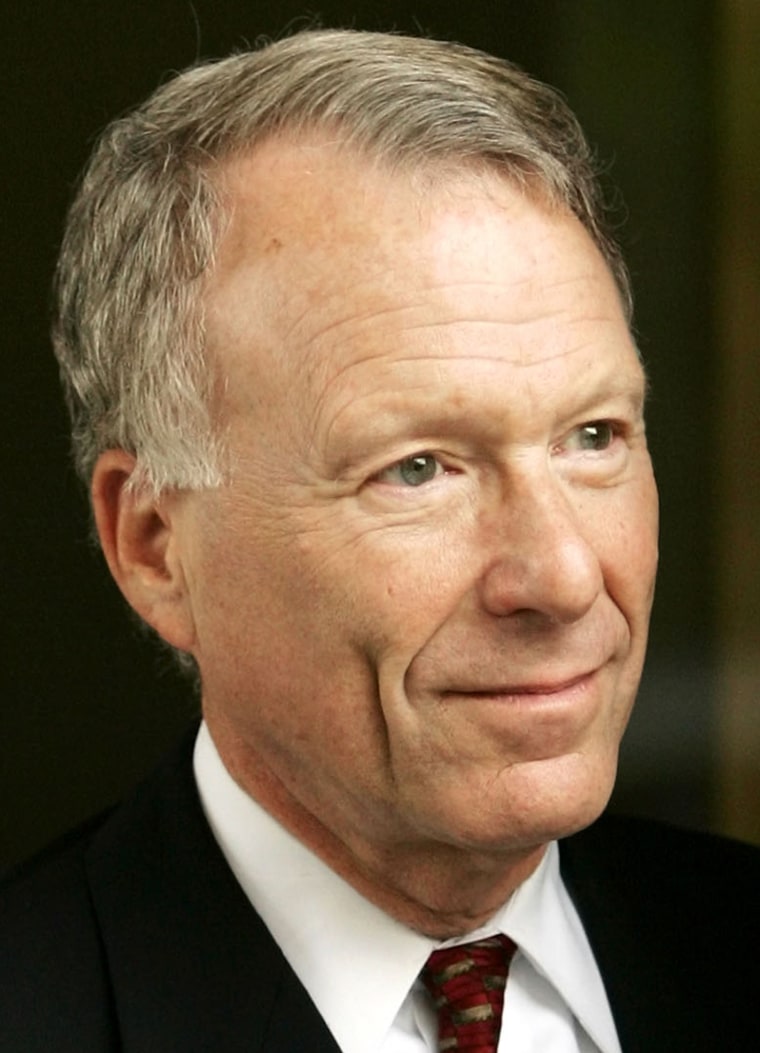Special Counsel Patrick Fitzgerald has signaled that none of the government witnesses he intends to call will refuse to testify in the upcoming trial of Vice President Dick Cheney's former chief of staff, I Lewis "Scooter" Libby.
Fitzgerald did not say if Cheney or other top White House officials were on his witness list. But, he says, that none of the proposed witnesses intend to assert executive privilege, in an attempt to exclude their testimony.
The vice president himself has said in a CNN interview in June, "I may be called as a witness."
The special counsel only says that he, "is not aware of any government witness who is intending to assert a blanket privilege, and the government does not otherwise anticipate any of its witnesses moving to quash or limit trial subpoenas, " according to the court filing.
Fitzgerald also writes that he does not intend to examine any witnesses on any topic for which, "we expect an assertion of privilege."
Institutional reasons?
Legal scholars contacted by NBC News have said that Cheney will likely resist testifying if called, citing personal and institutional reasons.
Carl Tobias, a professor of law at the University of Richmond, said the special prosecutor will call the vice president only, "if he believes that Cheney can help Fitzgerald prove his case."
If the vice president does testify at Libby's trial — scheduled to begin in January — he would be the first sitting vice president to testify at court in a criminal case, according to legal experts.
Cheney has defended Libby recently in interviews on CNN and FOX News that Libby is "one of the finest men I've ever known," and "He is a great guy. I worked with him for a long time. I have tremendous regard for him."
Government officials and journalists are expected to be key witnesses in the trial, which is scheduled to start next month.
Media witnesses
Former New York Times reporter Judith Miller and NBC News Washington bureau chief Tim Russert are expected to be prosecution witnesses. Libby's lawyers said in court papers Thursday that several reporters will testify on Libby's behalf.
Two unidentified reporters may resist testifying, Libby's attorneys said, but they expect to resolve that issue before trial .
Libby also has sought a subpoena for the tape of Washington Post reporter Bob Woodward's interview with former Deputy Secretary of State Richard Armitage. Armitage has admitted he discussed Plame's job with Woodward in 2003 but said it was a passing, inadvertent comment.
If admitted into evidence, the tape could be played at trial. The tape has been turned over to prosecutors, and Libby's attorneys said they expect no objection to their subpoena.
A series of court filings in the CIA leak case provide details of Cheney's role at the center of an administration effort to rebut an outspoken critic of the White House's rationale for the Iraq war in the summer of 2003.
Libby is charged with lying to investigators and a grand jury about his conversations with journalists regarding former CIA operative Valerie Plame.
Niger trip
Plame is the wife of Ambassador Joseph Wilson and worked for the CIA when her husband was sent by the agency to Niger to investigate claims that Iraq was seeking yellowcake for a nuclear program. Wilson wrote an op-ed in the New York Times, titled, "What I Didn't Find in Africa," that the Bush administration somehow, "twisted" some intelligence about Iraq's nuclear weapons program.
Fitzgerald offered new details of Cheney's reaction to the article when he filed in court several months ago the handwritten annotations on the newspaper clipping by Cheney himself.
Fitzgerald argues that Wilson's article itself lies at the center of the sequence of events leading to I Lewis "Scooter" Libby's alleged criminal conduct.
The annotated version of the article shows handwritten notes at the top, and underscores within the article by Cheney, that Fitzgerald says reveal the harsh reaction the vice president had to Wilson's assertions about U.S. intelligence on Iraq's weapons of mass destruction.
The notes by Cheney seemingly question the CIA's motivation for sending Wilson on the fact finding trip to Niger. Cheney writes, "Have they done this sort of thing before? Send an Ambr (ambassador) to answer a question? Do we ordinarily send people out pro bono to work for us? Or did his wife send him on a junket?"
Neither Libby nor Fitzgerald has asserted that Cheney directed Libby to leak Plame's name to reporters. Cheney and President Bush were interviewed at the White House by the prosecutor's office in June 2004, but details of what they said have not been disclosed. Both the President and vice president were not under oath when they spoke to investigators.
Fitzgerald also said in the court filing Thursday that he does not intend to appeal Judge Reggie Walton's ruling on the standards for determining which classified materials Libby may use as evidence in defending himself. Pulling the appeal clears one of the last hurdles for the trial to begin on time in January.
